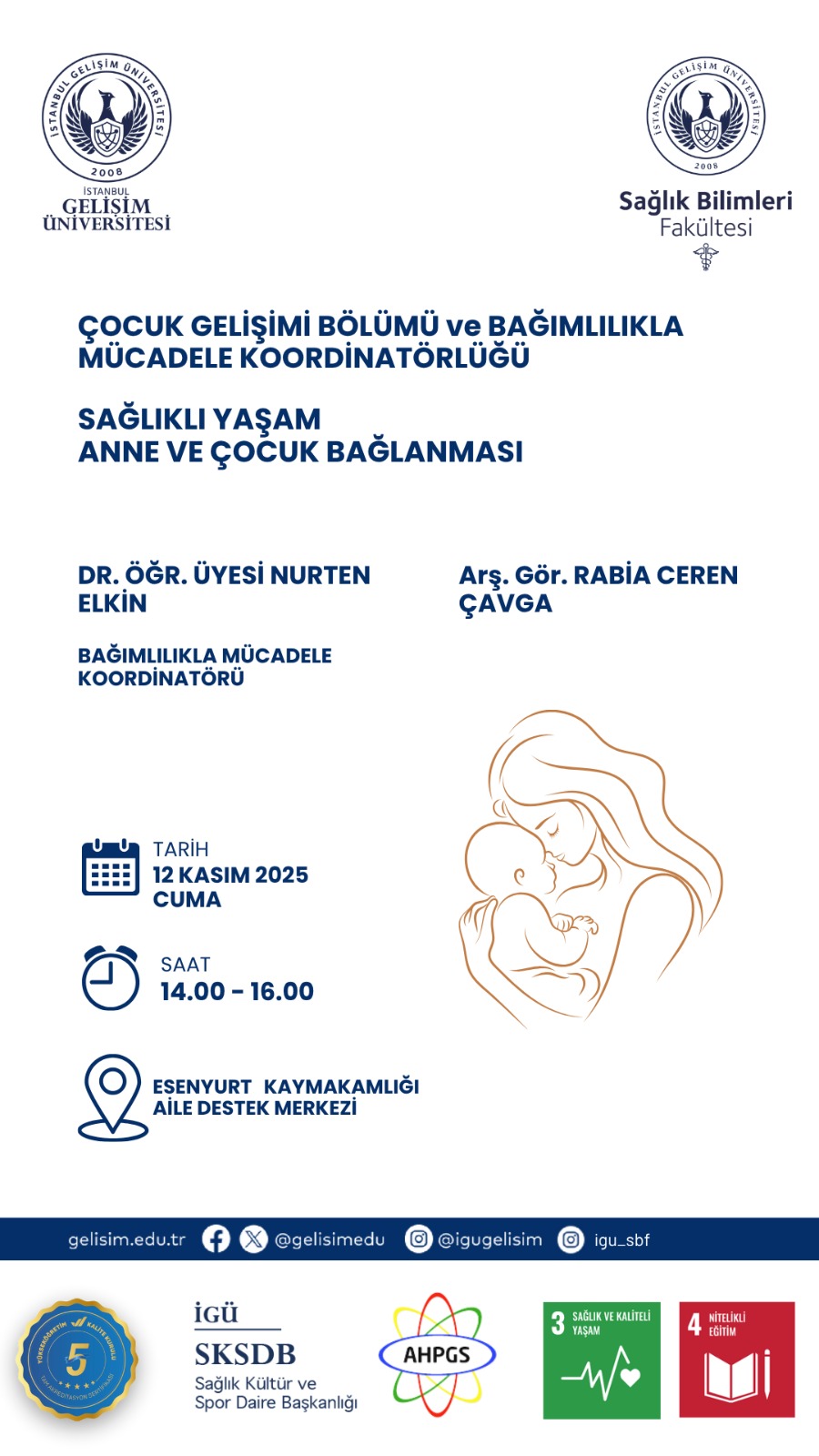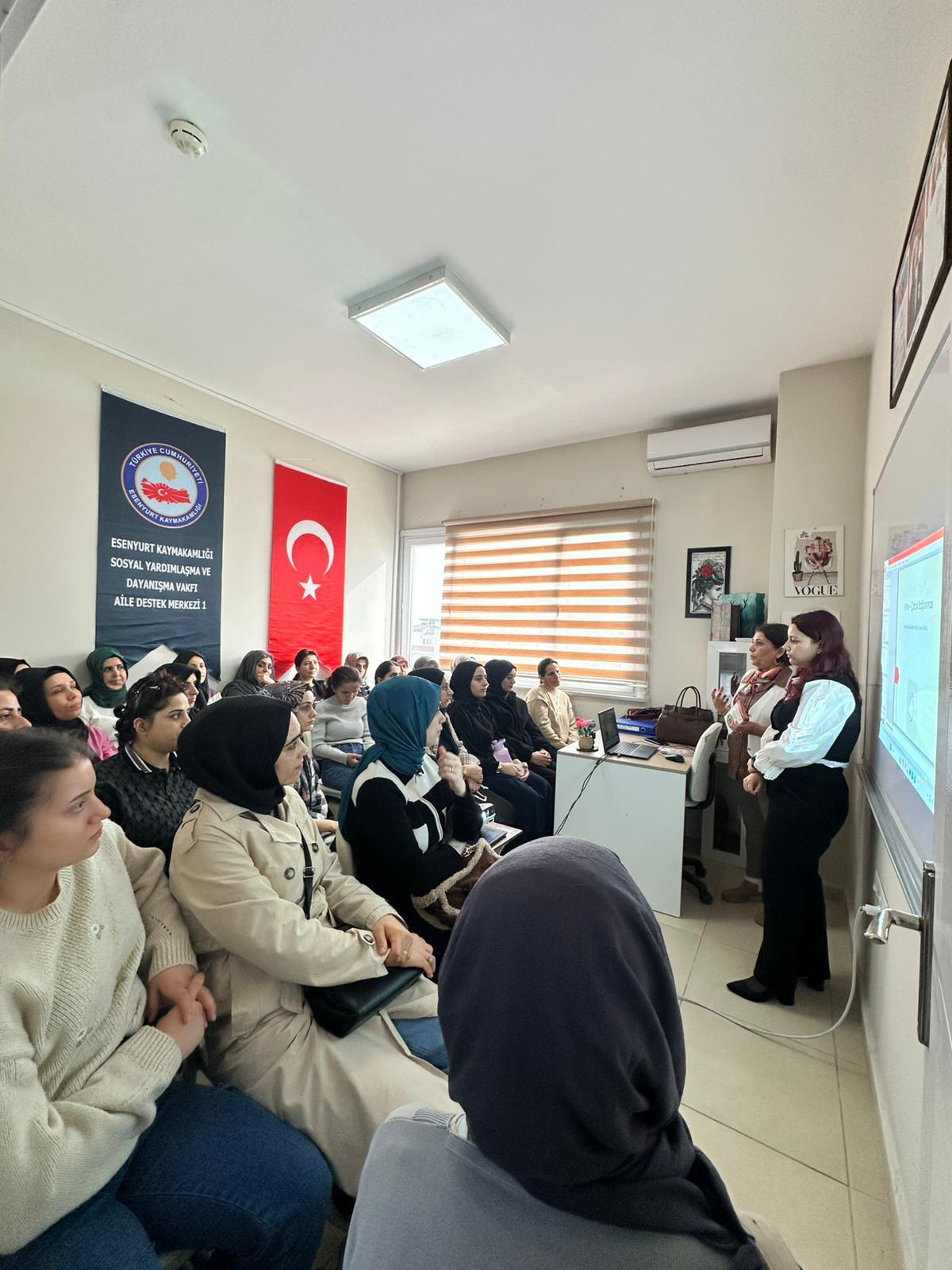The seminar on
“Healthy Living and Mother-Child Attachment,” organized by the IGU Coordination Unit for Combating Addiction, was held in two sessions and attended by a large number of mothers and fathers. Participating families gained valuable insights from experts regarding the role of attachment in children’s emotional development.
In the first session,
Asst. Prof. Nurten ELKİN, Head of the Department of Child Development and Coordinator of the IGU Coordination Unit for Combating Addiction, began her presentation by introducing herself. She provided an overview of the projects, programs, and educational activities carried out by the Coordination Unit both within and outside the university. She emphasized the importance of avoiding addictions in developing healthy living habits and behaviors. Asst. Prof. ELKİN outlined the fundamental components of a healthy lifestyle, including adequate and balanced nutrition, sufficient physical activity, quality sleep, stress management, and personal hygiene.
She further highlighted that addictions, which can lead to significant consequences for individuals, families, and society, constitute a biopsychosocial health problem. In this context, preventive measures and early protection are more crucial than treatment and rehabilitation. At the conclusion of her presentation, she distributed the “Healthy Living” brochures prepared by the Coordination Unit to the participants.
Research Assistant Rabia Ceren ÇAVGA emphasized the impact of maternal attitudes during the first three years of life on a child’s self-confidence, social relationships, and academic success. During the Q&A session, participants shared their personal experiences and received individualized guidance from the experts.
Mother-child attachment is defined as the emotional and physical closeness established between a mother and her child from birth. This bond forms the foundation for the child’s sense of security, personality development, and future social relationships. The period between 0 and 3 years is particularly critical for the development of attachment. When a mother responds sensitively and consistently to her child’s needs, a secure attachment develops, supporting the child’s growth into a confident individual capable of expressing emotions and forming healthy relationships. Conversely, neglect, inconsistency, or overly controlling behaviors may lead to anxious or avoidant attachment patterns. During the attachment process, a mother’s warmth, patience, and understanding, along with physical touch, eye contact, play, and emotional presence, are essential. Children with secure attachment tend to manage stress more effectively and maintain balanced social relationships as they grow.
At the end of the event, families were provided with informative brochures on spending quality time with their children and enhancing emotional awareness. Participants reported that the seminar was both informative and awareness-raising and expressed a desire for similar events to be organized in the future.




